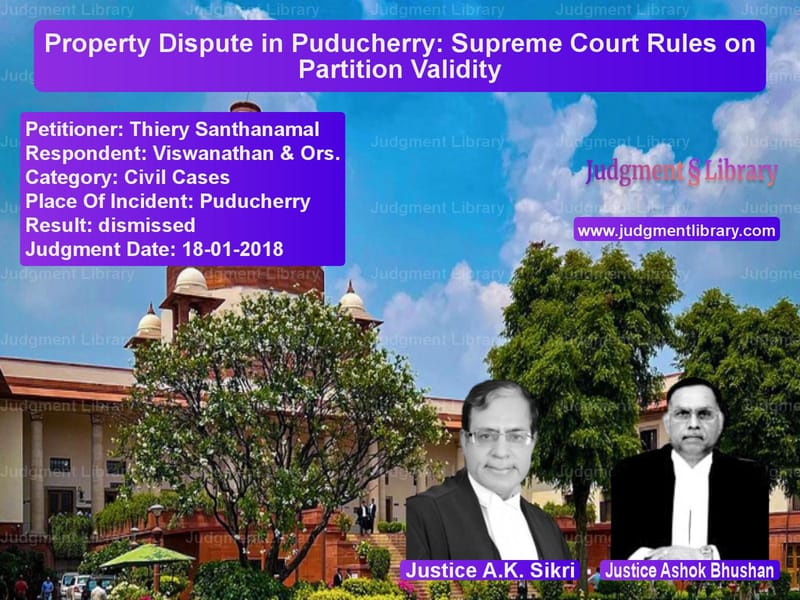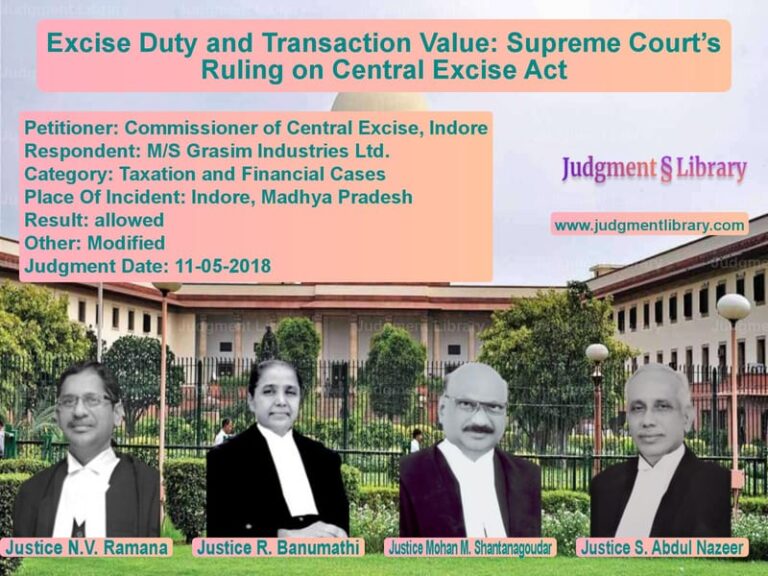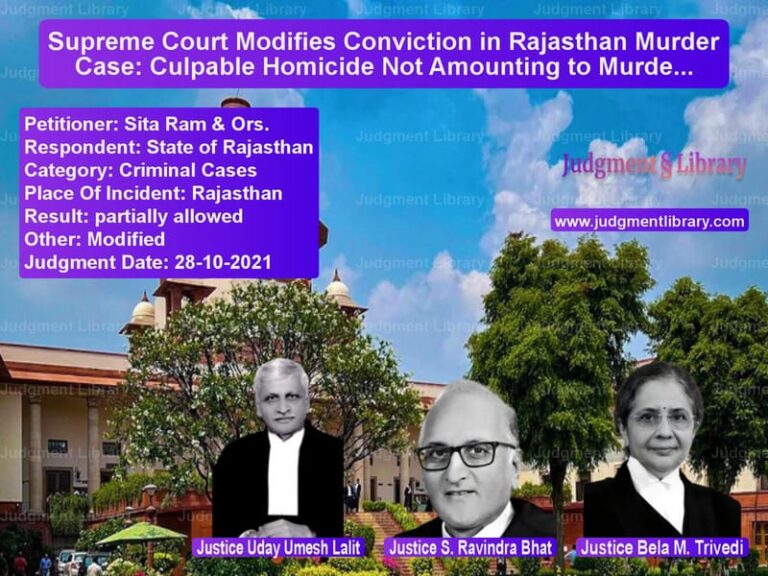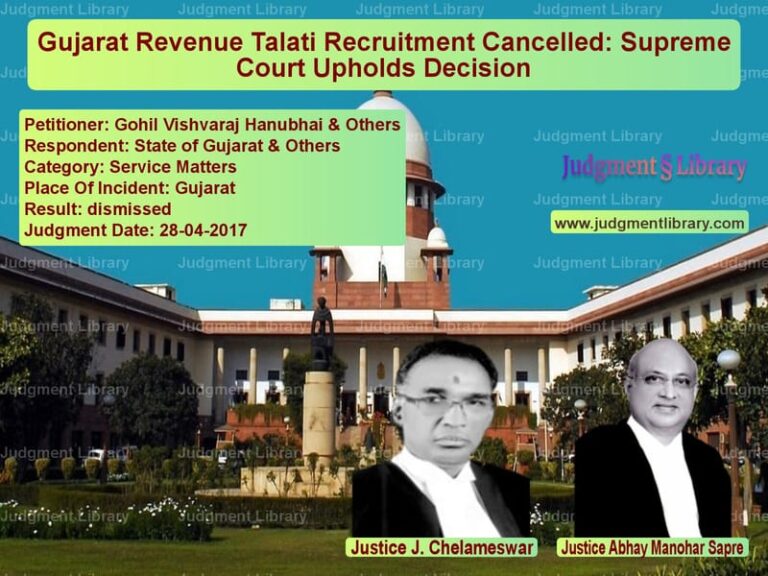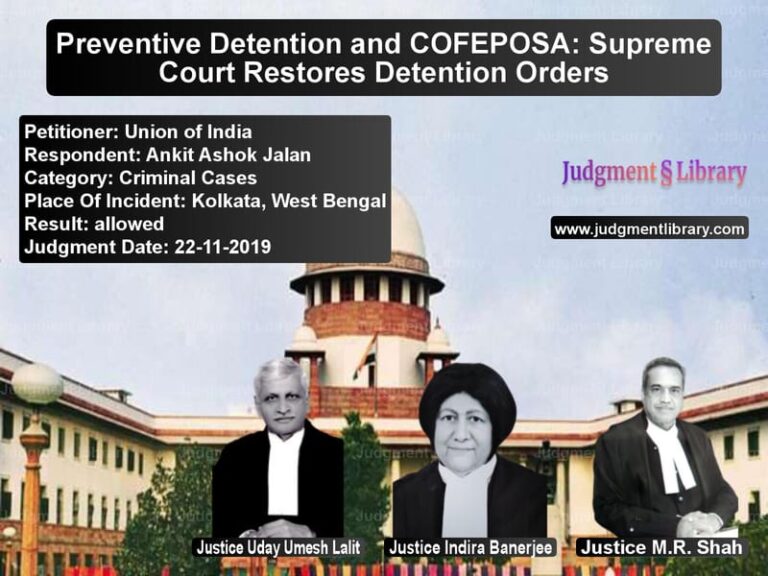Property Dispute in Puducherry: Supreme Court Rules on Partition Validity
The Supreme Court of India, in its ruling on January 18, 2018, addressed a long-standing property dispute concerning the validity of a partition deed executed in 1971. The case revolved around ownership claims over a property in Puducherry, which had changed hands multiple times over the years due to conflicting legal interpretations and judicial rulings.
Background of the Case
The dispute involved a suit property originally owned by Mariasusai Mudaliar, which was later inherited by his two sons, Oubegaranadin and Simon. Through a series of partitions and legal transfers, the property was eventually divided among Oubegaranadin’s children. The central question before the Court was whether a partition deed executed by Oubegaranadin in 1971 was legally valid, given that his children were minors at the time.
Petitioner’s Arguments
The petitioner contended that:
- The partition deed of March 15, 1971, was valid as per law.
- Even if the sons could not claim partition during their father’s lifetime, the father himself had executed the partition deed voluntarily, which should be legally binding.
- The decree obtained by Oubegaranadin in 1974 nullifying the partition was fraudulent and should not affect the sons’ ownership rights.
- The sale of portions of the property to the petitioner was valid and enforceable.
Respondents’ Arguments
The respondents, primarily the purchasers of another portion of the property from Oubegaranadin, countered by stating:
- Under customary Hindu law applicable in Puducherry, sons could not claim a share in their father’s property during his lifetime.
- Since the partition deed was invalid, any further sales by the sons had no legal standing.
- The decree of 1974, which declared Oubegaranadin as the absolute owner, was legally sound and binding.
- French Civil Law applied in Puducherry, and the partition deed did not comply with the necessary legal formalities.
Observations of the Supreme Court
The Supreme Court analyzed various legal aspects, including the application of customary Hindu law in Puducherry. The Court noted:
- Customary Hindu law continued to apply to Christians in Puducherry regarding property matters.
- Under Hindu law, sons had no right to demand partition during the father’s lifetime.
- The partition deed of 1971 could not be considered a valid legal instrument as it did not meet the requirements of a gift or family settlement under French law.
- The decree obtained by Oubegaranadin in 1974 was valid as it was not challenged on substantial legal grounds.
The Court specifically stated, “We, therefore, for our aforesaid reasons, agree with the conclusions arrived at by the High Court in the impugned judgment. As a result, this appeal is dismissed.”
Final Verdict
The Supreme Court dismissed the appeal, upholding the decision of the High Court that the partition deed of 1971 was invalid. The ruling effectively affirmed that the sale deeds executed by the sons had no legal standing and that the ownership of the property remained with Oubegaranadin as per the 1974 decree.
Conclusion
This judgment clarifies the application of customary Hindu law in Puducherry and reinforces the principle that legal formalities must be followed in partition and property transfer cases. It also underscores the importance of valid documentation and due legal process in determining property rights.
Don’t miss out on the full details! Download the complete judgment in PDF format below and gain valuable insights instantly!
Download Judgment: Thiery Santhanamal vs Viswanathan & Ors. Supreme Court of India Judgment Dated 18-01-2018.pdf
Direct Downlaod Judgment: Direct downlaod this Judgment
See all petitions in Property Disputes
See all petitions in Succession and Wills
See all petitions in Judgment by A.K. Sikri
See all petitions in Judgment by Ashok Bhushan
See all petitions in dismissed
See all petitions in supreme court of India judgments January 2018
See all petitions in 2018 judgments
See all posts in Civil Cases Category
See all allowed petitions in Civil Cases Category
See all Dismissed petitions in Civil Cases Category
See all partially allowed petitions in Civil Cases Category

